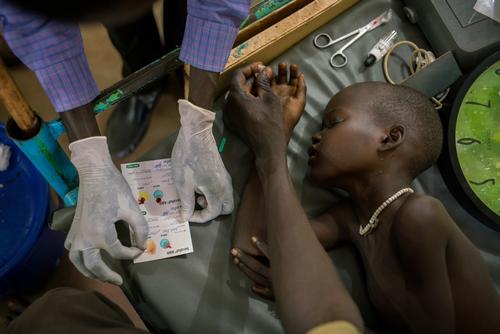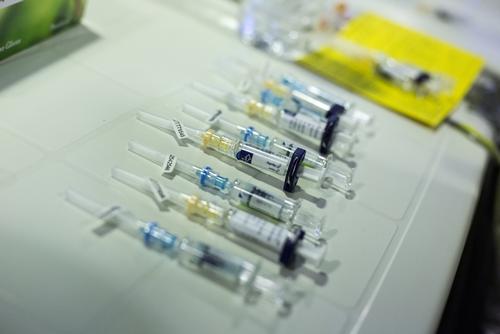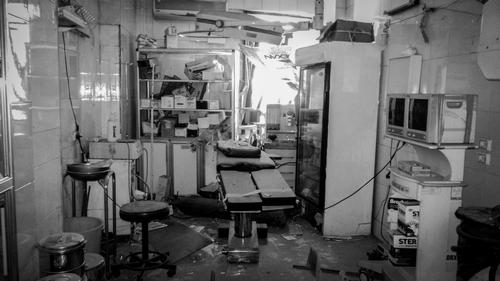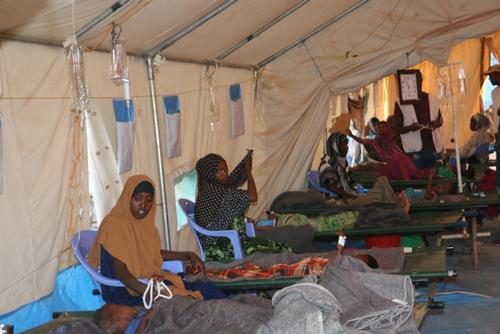New MSF report exposes pharma industry failings and highlights new ways of researching and developing medicines that address public health needs
Geneva – Governments must do more to promote the development of desperately needed new medicines, vaccines, and diagnostics at affordable prices, urges Médecins Sans Frontières (MSF), in a new report. As the 193 Member States of the United Nations meet at the General Assembly in New York this week, countries must prioritize urgent action to address some of the failures of research and development (R&D) into essential new drugs – such as antibiotics – and their often sky-high prices.
MSF’s report, Lives on the Edge: Time to Align Medical Research and Development with People’s Health Needs, diagnoses the failure of the current R&D system, and outlines new ways of developing tools to better address the medical needs of people, at prices they can afford. Governments must seize the opportunity to take action now, particularly in light of a forthcoming report on these issues commissioned by the UN Secretary General, and as world leaders gather at a UN summit to agree to collective action to address the crisis of drug-resistant infections, or antimicrobial resistance (AMR).
“People in poor and wealthy countries alike are now finding that the medicines they need either don’t exist, or are priced so high they can’t afford them, and governments need to solve these problems,” said Katy Athersuch, Medical Access and Innovation Policy Advisor of MSF’s Access Campaign. “At this year’s UN General Assembly, governments must seize the opportunity to support measures that will ensure new, affordable medicines are developed to meet urgent health needs – they cannot afford to simply prescribe the same old failed policies.”
People in poor and wealthy countries alike are now finding that the medicines they need either don’t exist, or are priced so high they can’t afford them, and governments need to solve these problems
Pharmaceutical corporations woefully under-invest in research for diseases that aren’t lucrative, while governments have failed to ensure that taxpayer-funded research addresses priority health needs. A lack of diagnostic tools, vaccines and medicines for Ebola and drug-resistant infections, for example, illustrate that the industry’s focus is on how the financial bottom line looks for companies and their shareholders, rather than on meeting pressing medical needs. With new hepatitis C medicines priced at US$1,000 per pill in places, the exorbitant prices pharmaceutical corporations charge people for lifesaving medicines is under intense scrutiny across many of the 193 UN member countries.
“The needs of people in the poorest countries are going unnoticed by pharmaceutical corporations. In the last half century, we’ve had just two new drugs developed to treat tuberculosis (TB), the world’s top infectious disease killer responsible for 1.5 million deaths a year,” said Dr Jennifer Hughes, TB doctor for MSF South Africa. “The people who MSF treats for drug-resistant TB need treatments that don’t leave them deaf or suicidal, and that give them better odds of being cured than just one in two. But the current way new drugs get developed means that pharmaceutical corporations aren’t interested in delivering better treatments for TB – as there’s not enough profit in it for them.”
Governments must introduce new approaches to R&D for medical tools to better diagnose and treat the health needs of people in all countries – and at affordable prices. These approaches need to break the links that tie medical research to high prices through monopoly-based market protections. One example of this new approach to R&D is the 3P Project, an initiative between MSF and other organizations involved in TB that aims to conduct collaborative research to develop new treatment regimens for TB by sharing data and intellectual property, and by paying for research using a novel combination of grants and prizes.
“The old ways of conducting R&D for new medicines clearly no longer work – not for the poorest countries, and increasingly not for the wealthiest countries either,” said Ms Athersuch. “We need to completely re-write the rule-book for medical R&D: it is time to try something new. With the UN Secretary General spearheading an effort to improve innovation of, and access to, health technologies, and a high-level global summit taking place on the global crisis of drug-resistant infections, this year’s UN General Assembly offers critical opportunities for governments to chart a new course for medical R&D.”
See the multimedia version of our report on http://livesontheedge.msf.org







